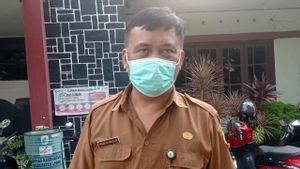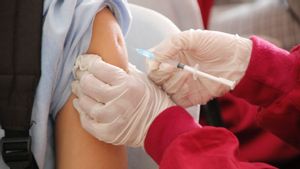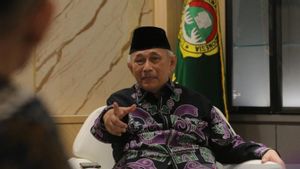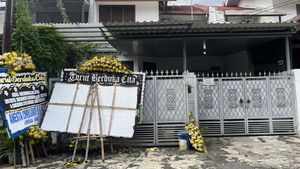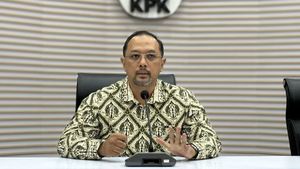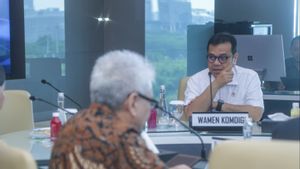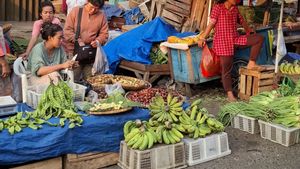JAKARTA - Pulang Pisau Health Office, Central Kalimantan, found 16 identified cases of HIV/AIDS with three people dying in the local area since 2013.
"We can only ask the public to remain vigilant because the spread of HIV-AIDS is like an iceberg that is not easily revealed to the surface", said Plt Kadinkes Pulang Pisau, Dr. Bawa Budi Raharja, through the Head of Disease Prevention and Control, Dr. Pande Putu Gina, at Pulang Pisau, Thursday, July 14.
One of the last cases of HIV-AIDS infection, said Pande, was revealed in 2022. This patient was previously revealed during a COVID-19 examination.
The medical staff's suspicions led to canker sores and diarrhea that did not go away until an HIV test or VCT (Voluntary Counseling and Testing) was carried out and the results were positive.
Pande admits that it is not easy to uncover this case of HIV-AIDS. On average, new patients are detected after experiencing complications of other diseases.
This iceberg phenomenon can happen, one patient who is revealed represents 10 or 100 others who have not been revealed.
According to him, of the HIV-AIDS cases found in this district, on average, it is dominated by immigrants with sufferers aged between 18-45 years, who are in the productive and reproductive age. Even in 2021, a husband and wife couple from Pandih Batu District were infected with the HIV-AIDS virus.
SEE ALSO:
The Health Office continues to monitor and provide education so that patients are enthusiastic about living and taking treatment regularly.
HIV/AIDS is a virus that attacks the immune system or body's immune system, so it is very easy for other diseases such as tuberculosis to come along if the sufferer is negligent in taking medication.
According to him, the difficulties experienced by the local Health Office from several cases of HIV/AIDS revealed that sufferers felt ashamed of their surroundings and returned to moving places outside the area.
For those in the local district, of course, the sufferer will continue to be monitored by the Health Service and given education, by detecting the closest family to prevent the spread of transmission.
"In addition, the Health Office also periodically provides education and counseling at points that have the potential to spread", explained Pande.
He also revealed that the spread of HIV/AIDS is dominant and vulnerable to occur in the 3M criteria or terms, namely Man, Money, Mobile. Changing partners and "snacking outside" is very risky for contracting a virus that only spreads from unhealthy sex patterns, and can also be infected from needles by drug users who are infected with HIV-AIDS.
"Transmission through needles is still not found in the local district", he said.
Pande reminded that the transmission of HIV/AIDS can be prevented if all parties understand and realize how dangerous this disease is. The need for synergy from all components of the government, community leaders, religious leaders, youth, and village governments in conducting education related to the dangers of HIV/AIDS in the community.
The English, Chinese, Japanese, Arabic, and French versions are automatically generated by the AI. So there may still be inaccuracies in translating, please always see Indonesian as our main language. (system supported by DigitalSiber.id)



